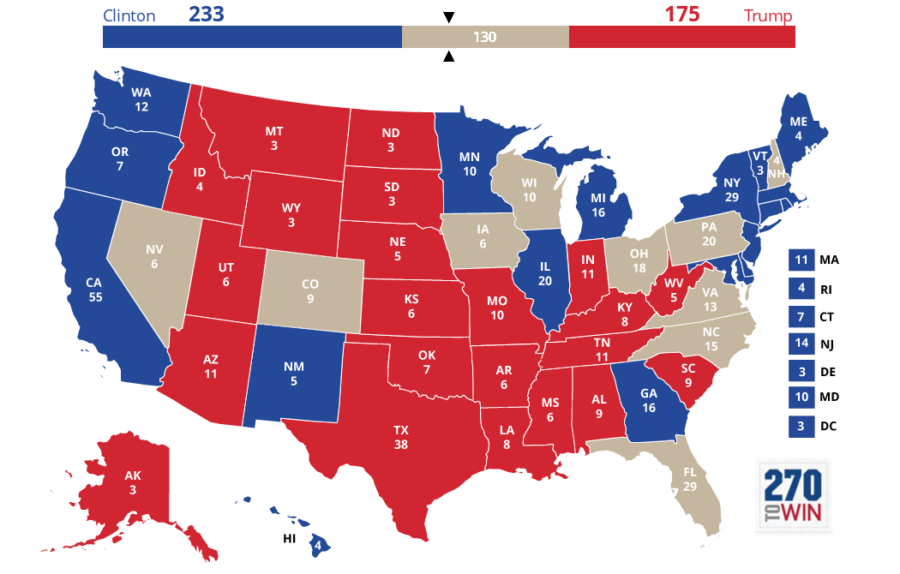In an impossibly unnerving Presidential election year, where no sensible choice seems possible for Christians, there emerges a tendency among Christians (and other morally like-minded people) to “choose life” and vote for Trump in the mode of the reluctant, single-issue voter. A recent example of this can be seen in Wayne Grudem’s recent controversial endorsement of Trump as the “morally good choice” for President. [1] Reviewing his essay again, it is clear to me that the bulk of his defense of Trump concerns the Supreme Court judicial appointment process and the ethical victories Christian voters stand to gain with a favorable Supreme Court fashioned under the potential Trump Administration (i.e., gains to be made in abortion and religious liberties). Says Grudem:
This year we have an unusual opportunity to defeat Hillary Clinton and the pro-abortion, pro-gender-confusion, anti-religious liberty, tax-and-spend, big government liberalism that she champions. I believe that defeating that kind of liberalism would be a morally right action. Therefore I feel the force of the words of James: “Whoever knows the right thing to do and fails to do it, for him it is sin” (James 4:17).
Before I offer my reasons of disagreement with Dr. Grudem (leaving to the side his problematic use of James 4:17), first, we should recognize that despite the strident criticism his remarks have generated (see link for referenced examples), many Christian Americans are inclined to agree with Dr. Grudem. Like him, they will choose Trump not merely as a lesser of two evils, but as the morally good choice of (among other moral issues) preventing further abortion. The nature of the secret ballot permits Americans to vote Pro-Life without the shame of having to vocally support the (let’s face it) patently unsupportable Donald Trump.
Second, let me state unequivocally that I myself am Pro-Life. I affirm that life begins at conception. I mourn for the lives that have been taken in our country (reflected in the approximately 1 million abortions per year reported to the CDC — God knows the number is higher). I believe that the government should have a social interest in protecting human life in ways that meaningfully balance against “a woman’s right to choose” except for legitimately countervailing circumstances (e.g., life-threatening conditions, rape, etc.).
So as a Pro-Life Christian, why not vote for the best chance to create a Supreme Court that overturns Roe v. Wade and saves millions of lives?
Because in this case, I believe such action goes against what the Bible teaches Christians to do. It does not follow the pattern of Christ. It does not mirror Christ’s humility. Instead, it embraces the politics of power and inappropriately imposes the will of the few upon the will of the many. Grudem’s argument is essentially cast in militaristic terms: “we have an unusual opportunity to defeat” the pro-abortion liberal wing; we can pack the Supreme Court with Justices who will swing the vote against abortion. Perhaps lacking the votes to win the issue democratically, this path seeks to win the issue through the backdoor. Such thinking does not reflect the heartbeat of God’s kingdom. Furthermore, such thinking fails to grasp the harm that ensues from this.
Let’s say that Christians across America do vote en masse for Trump in the name of Pro-Life interests. Let’s say that Trump wins and does fill Justice Scalia’s seat (and perhaps another vacancy) with avowed Pro-Lifers who claim Roe v. Wade was wrongly decided. What is accomplished? Nothing more than a likely short-lived legal victory that divides the country and embitters public perception against Christians who are seen to have exploited politics to strong-arm their morality against the will of the democratic whole. “Stacking” the Supreme Court is little more than a power play that Christians ought not to employ. Such action turns to unelected officials to make law in ways that subvert true democracy. Sometimes Courts have acted in this way for the good (e.g., Brown v. Board of Education and desegregation); many times this is for the worse (e.g., Korematsu v. United States and the Japanese Internment).[2]
Granted this is how politics is often seen to work. The arbiters of realpolitik will tell you that this is a knife fight, where participants best not come empty-handed. I hear some of this in Dr. Grudem’s pleadings to “avoid sin” by voting to take down the liberal, pro-abortion regime. But this is not how Christians ought to engage their politics (tempting as it is in the name of “saving lives”). Yes, Christians who are Pro-Life should be ardently so. Yes, they should seek to engage the voting public to take a coherent stance on the viability of human life at conception (if not then, where?). Yes, Christians should hope and pray for a change in our country on the issue of abortion. But not like this. We should not be so committed to this issue to sweep away all other issues and undermine the credibility of our own Christian witness at the same time. If we win the abortion issue, it must be because the church, as a well-defined, public, and counter-cultural entity convinced others that she was right about the value of all human life. It must not be because we helped vote for an arrogant and petty blowhard who exploits the “unusual opportunity” and packs the Courts to impose its will on the public.
I suppose it must be obvious from my tone that I will not be voting for Donald Trump. My point in writing this, however, is not to convince others to do the same. I write only to expose the error in thinking that a vote for Trump is “the morally right” thing to do in the name of saving human life. I write to repudiate Grudem’s insinuation that to not vote for Pro-Life issues, and hence, not to vote for Trump, is in turn to somehow fall into sin. I hope I have made my point that Grudem’s advocacy opts for a path that is merely ethically noble on its face, but manipulative in its engagement of power politics, divisive in its method, and ultimately contrary to the humility and love of Christ. I concede the political alternatives are not ideal. Any ways forward must be reserved for another time (though any meaningful ways forward really must begin with the starting point that it is not what Christians can do in and through the government, but what the Holy Spirit can do in and through the church that should matter most for Christians). Perhaps I should for the time being simply join in Garrison Keillor’s recent prayer,
“God help us. I mean it. We’re in trouble down here.”
[1] See here for Grudem’s Remarks: [link] For the unfamiliar, Wayne Grudem is a highly influential and important voice to the evangelical community as a professor and writer.
[2] Perhaps the most famous example of the Supreme Court overstepping its role was Bush v. Gore (2000), where the Court was widely regarded as wrongfully interjecting itself in the democratic process in essentially deciding the Presidency in favor of George W. Bush.





7 Comments
Leave your reply.